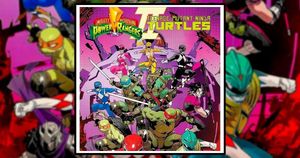Rambo's Legacy: An Action Film Icon
Exploring the enduring impact and classic appeal of the Rambo film franchise.
The Rambo film franchise, originating with the iconic First Blood and featuring Sylvester Stallone as John Rambo, has etched its mark on the action genre since its debut. Through five film installments, the franchise has captivated audiences, laying claim to its rightful place among the pantheon of classic action films. Rambo, who first graced the big screen in the 1982 film, embodies the archetype of the unstoppable force, often finding himself battle-scarred but ever resilient against overwhelming odds.
What makes the Rambo saga stand out? First and foremost, it’s Stallone’s powerful portrayal as the enigmatic, tortured protagonist who struggles with the ghosts of war. The franchise resonates deeply with themes of survival, trauma, and redemption, all wrapped up with explosive action sequences.
From First Blood to Rambo: First Blood Part II, the films not only deliver high-octane thrills but also reflect broader sociopolitical sentiments. For example, the original film showcased the harsh realities faced by Vietnam veterans and their integration back to civilian life, creating poignant connections with audiences.
Over the years, film critics and fans alike have drawn parallels between Rambo and other action film icons, such as Bruce Willis’s John McClane from Die Hard and Arnold Schwarzenegger’s T-800 from The Terminator. This comparison illuminates the quintessential aspects of each character and the respective different styles of action films they represent. Rambo's increasingly superhuman capabilities, particularly noted from sequels onward, align him with characters from the likes of Commando and Cobra, who demonstrate similar feats of endurance and strength against stratospheric odds.
Throughout the franchise, numerous action films have been referenced or recommended for fans of Rambo. For example, Cobra, another Stallone vehicle, offers glimpses of what action aficionados appreciate – gritty violence and lone-wolf narratives. Taken, starring Liam Neeson, also bears resemblance to Rambo's aggressive, stand-alone rescue missions. The steady stream of revenge-driven narratives seems to be the thread weaving through this action-film fabric.
Stallone’s influence was palpable. Films like The Expendables 2, which drew together various action stars of the '80s, evoke nostalgia linked to the Rambo legacy. This film serves as homage to not only Rambo himself, but also the era of larger-than-life heroes, where protagonists bear resilience against insurmountable odds.
Interestingly, some films intended to expand or resemble the Rambo mythos took shape through other actors. A notable example is Homefront, originally envisioned as the fourth Rambo installment. After Stallone pivoted from this idea, the script found life through Jason Statham, echoing Rambo’s essence but weaving it through Statham’s own action persona. This kind of crossover showcases Rambo’s pervasive influence across the action genre.
The evolution of the Rambo character, undeniably, reflects changes within the action film genre itself. Initially, Rambo is depicted as isolated and burdened by trauma, but as the series progresses, he morphs nearly superhero-like. This transformation poses questions about the portrayal of masculinity and resilience through action cinema. Rambo became not only the hunter but also the hunted, encapsulating emotional depth often overshadowed by intense action.
With nostalgia for classic action films thriving, it is no surprise Rambo is recommended alongside other action classics. Movies such as Commando, with Arnold Schwarzenegger bringing one-liners and martial prowess, resonate with viewers who appreciate Rambo’s explosive energy.
So what's the recipe for the enduring appeal of Rambo? At its heart, it’s Stallone's charisma, coupled with well-timed action sequences and thought-provoking themes. The franchise has successfully created multi-layered characters and storylines – qualities not typically highlighted under the surface of run-of-the-mill action flicks.
The question remains: How will Rambo’s legacy evolve, as we see Hollywood continually draw from this well of nostalgia and character depth? With recent discussions around the potential revival of the franchise or new interpretations, the desire for fresh takes on beloved characters amplifies.
With every Rambo film, audiences are taken on visceral journeys, skillfully mixing adrenaline, emotion, and escapism. It inspires new generations, gives nods to prior eras, and challenges filmmakers to push boundaries within action narratives. For enduring fans and newcomers alike, there’s no denying the cultural and cinematic significance of Rambo.



